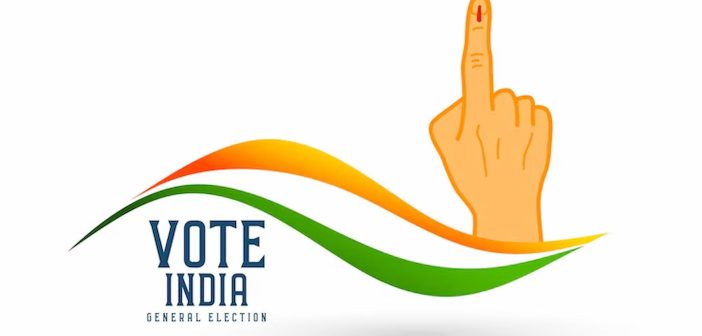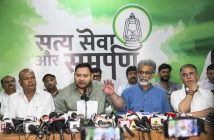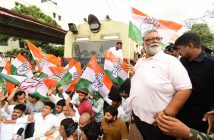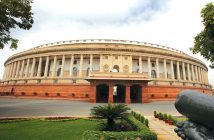The 2024 Indian general election in Ladakh was held on May 20, 2024, to elect the lone member of the 18th Lok Sabha. The election was a three-cornered fight between the Bharatiya Janata Party (BJP), the Indian National Congress (INC), and an Independent candidate, Mohmad Haneefa.
Here’s the updated list of top candidates in Ladakh state. The final results for the seats are shown in bold. Keep checking back to see who won each seat.
Party Wise Ladakh Election Results 2024
| Party Wise Results | |||
| Party | Won | Leading | Total |
| Independent – IND | 1 | 0 | 1 |
| Total | 1 | 0 | 1 |
Winning Candidate – Independent (Ladakh)
| S.No | Parliament Constituency | Winning Candidate | Total Votes | Margin |
| 1 | Ladakh(1) | MOHMAD HANEEFA | 65259 | 27862 |
विजयी अभ्यर्थी – निर्दलीय (लद्दाख)
| क्रम संख्या | संसद निर्वाचन क्षेत्र | विजयी अभ्यर्थी | कुल मत | अंतर(मार्जिन) |
| 1 | लद्दाख(1) | MOHMAD HANEEFA | 65259 | 27862 |
Main Candidates
Tashi Gyalson (BJP)
Tashi Gyalson is the Bharatiya Janata Party’s candidate for the Ladakh Lok Sabha seat. He is a well-known figure in the region and has been actively involved in the local politics. His campaign focused on the BJP’s development policies and the party’s commitment to the region’s growth.
Key Points: Tashi Gyalson is a seasoned politician with a strong local presence. His campaign emphasised the BJP’s achievements in the region and its commitment to the people of Ladakh.
Tsering Namgyal (INC)
Tsering Namgyal is the Indian National Congress’s candidate for the Ladakh Lok Sabha seat. He is a respected figure in the region and has been actively involved in local politics. His campaign focused on the INC’s development policies and the party’s commitment to the region’s growth.
Key Points: Tsering Namgyal is a well-known regional figure with a solid local presence. His campaign emphasised the INC’s achievements in the region and its commitment to the people of Ladakh.
Mohmad Haneefa (Independent)
Mohmad Haneefa is an Independent candidate running for the Ladakh Lok Sabha seat. He is a local figure with a strong grassroots presence. His campaign focused on regional issues and his commitment to the people of Ladakh.
Key Points: Mohmad Haneefa is a local figure with a strong grassroots presence. His campaign emphasised his commitment to the people of Ladakh and his ability to address regional issues effectively.
Factors Influencing the Outcomes
Voter Turnout: The voter turnout in Ladakh was recorded at 71.82%, which is relatively high compared to other regions. This high turnout indicates a strong interest in the election among the local population.
Demographic Shifts: Ladakh’s demographics have undergone significant changes since it was separated from Jammu and Kashmir under the Jammu and Kashmir Reorganisation Act, 2019. The region now has a distinct identity and growing self-awareness, which could have influenced the election outcomes.
Implications for Local, State, and National Politics
Local Politics: The election results in Ladakh will significantly affect local politics. The winning candidate will have a solid mandate to represent the region’s interests in the Lok Sabha.
State Politics: The election results will also affect state politics in Jammu and Kashmir. The outcome could influence the state’s balance of power and shape regional politics’ future.
National Politics: The election results in Ladakh will also have national implications. The outcome could influence the balance of power in the Lok Sabha and shape the future of national politics.
Trends and Unexpected Outcomes
BJP’s Performance: The BJP’s performance in Ladakh was a significant factor in the election. The party has traditionally been strong in the region, but its performance was affected by the emergence of the Independent candidate Mohmad Haneefa.
INC’s Performance: The INC’s performance in Ladakh was also noteworthy. The party has traditionally been weaker in the region, but Tsering Namgyal’s candidate initiated an intense fight.
Reflections on the Results’ Significance
The election results in Ladakh are significant because they reflect the region’s changing dynamics of local politics. The emergence of an Independent candidate and the strong performance of the INC indicate a growing desire for change among the local population. The results also highlight the importance of local issues and the need for candidates to address these issues effectively.
Conclusion
The Ladakh Lok Sabha election in 2024 was a significant event in the region’s political history. The election results reflect the changing dynamics of local politics and the growing desire for change among the local population. The outcomes will have significant implications for local, state, and national politics, and engaging with the insights and reflections on these results is essential.




